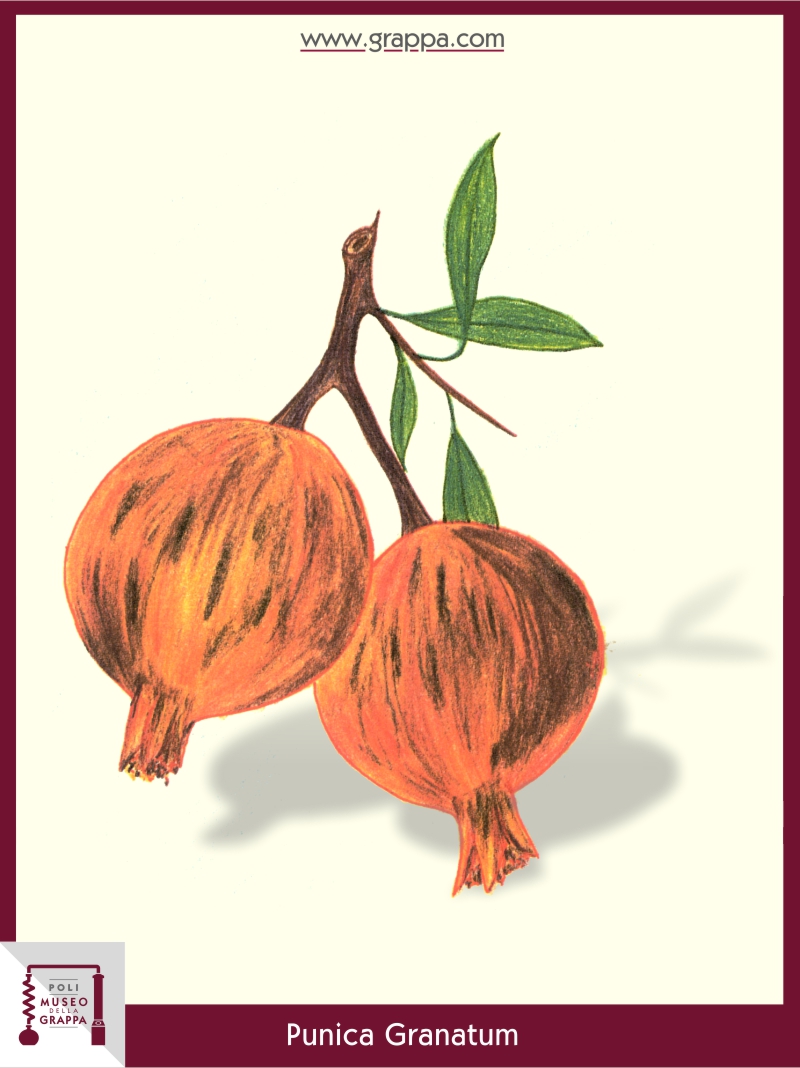Alcoholic Grenadines
- Plant: Pomegranate (Punica Granatum)
- Plant part: fruit
- Plant feauters: astringent, antioxidant, vermifuge, thirst-quenching, taenifuge

-
Description:
Malum Punicum was designated by the Romans as pomegranate, typical plant of the countries of temperate climate, which grew mainly in North Africa near Carthage.
However the plant is of very ancient origin; It is already mentioned in the Old Testament among the plants of the Promised Land.
The Phoenicians considered the pomegranate fruit almost as divine, so much that many figures of Egyptian and pre-Hellenic origin represented goddesses with this fruit.
Egyptian tombs, dated 2,500 years before Christ, still testify the importance they had.
In southern Spain the pomegranate was so present that even a city was named after it: Granada. In this city as well as around the world the pomegranate is considered a symbol of prosperity and wealth.In addition to the medicinal numbness of the pomegranate bark, another curious application as food is known: it was the forerunner of the so-called "grenadine" (pomegranate syrup), prepared with pomegranate juice and syrup enriched with karkadeh (hibiscus).
-
Note:
At higher doses to consum with caution, as it is not always well tolerated.
Contraindicated for children under 5 years and for pregnant women.
The recipe
-
Ingredients:
- seeds of pomegranate
- 1 liter of Grappa
- some flowers of the Karkadeh -
Preparation:
We offer you the pomegranate juice in an alcoholic version: cut the pomegranate fruit, remove the seeds and let them dry in the sun for a week. Then let them rest in a liter of Grappa standing in the sun for another week.
Put the mixture in a dark place, add a few hibiscus flowers and let it rest for 1 month.
Filter and let to age for 6 months.
The orange Grappa has a fresh taste, slightly sour and refreshing.
Poli Distillerie and
Poli Grappa Museum
Newsletter
Subscribe our newsletter to keep up to date with our latest news.